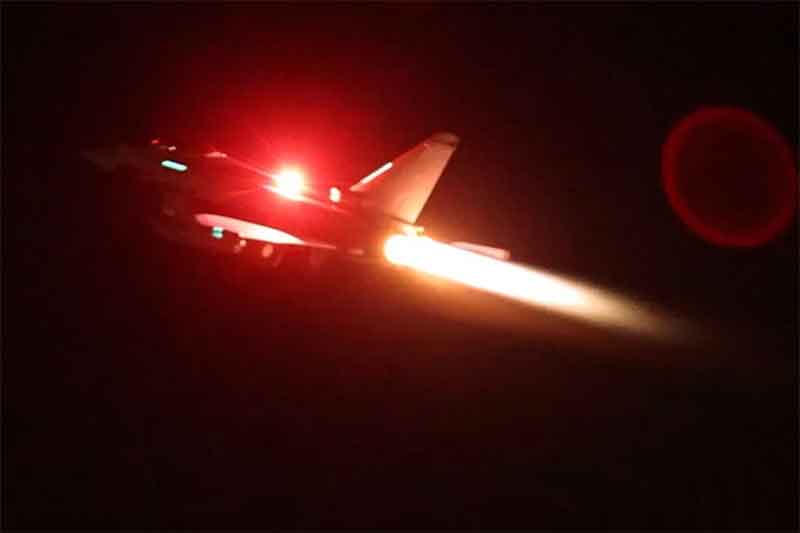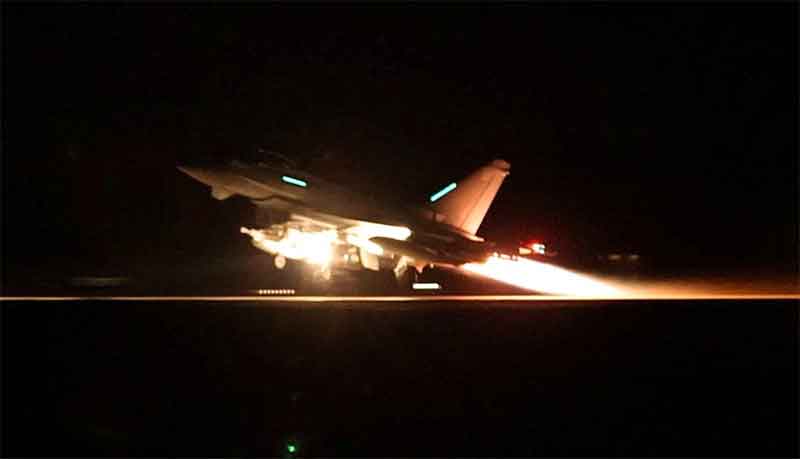The United Arab Emirates (UAE) and mercenary forces operating under its command have carried out widespread forced disappearances, torture and murder of Yemenis suspected of opposing the more than three-year-old intervention by the oil-rich Gulf state in alliance with Saudi Arabia and Washington.
This is the conclusion drawn by the human rights group Amnesty International after interviewing at least 75 people, including families of the disappeared and detained, survivors of the UAE torture centers, lawyers, journalists and local officials in Yemen.
Amnesty concentrated its investigation on 51 cases, typical of the untold hundreds if not thousands who have been swept up into the UAE detention and torture apparatus. Nineteen of these individuals remain missing, their whereabouts unknown to their families amid fears that some of them may have died in captivity.
The report outlines the stark political contradictions underlying the UAE’s repressive operations in Yemen. While intervening in the country as part of a Saudi-led coalition whose ostensible aim is the restoration to power of President Abd-Rabbu Mansour Hadi, the Saudi puppet who was overthrown by Houthi rebels in January 2015, the UAE is clearly pursuing its own interests in the region.
“The UAE had been bypassing Hadi government officials in dealing with security issues, at times prompting President Hadi and his supporters to criticize the UAE for behaving like an occupier,” the Amnesty report states.
This statement was substantiated on Monday when the “interior minister” designated by President Hadi, who remains in self-imposed exile in Riyadh, held a meeting in the southern Yemeni port city of Aden with a top UAE official, calling on Abu Dhabi to shut down or hand over the prisons it runs in southern Yemen.
The UAE has been working in collaboration with southern secessionists, who oppose the re-imposition of Hadi’s rule over the region, as well as with a network of militias and mercenaries that it is arming and financing.
Its aim is to assert control over a series of bases bordering the strategic waterways linking the Red Sea with the Indian Ocean, most importantly the Bab el-Mandeb Strait, through which much of the Middle East’s oil bound for Asia is shipped.
To assert its control, the UAE has instituted a reign of terror in the areas of Yemen it has conquered. According to Amnesty: “Witnesses described how detainees were dragged from places of work and on the street, in some cases they were beaten—at times to the point of bleeding or losing consciousness—and companions threatened when they attempted to question the arrest. When a 37-year-old man was being arrested by the Security Belt while hanging out with friends near his house in Aden he was beaten up when he asked why he was being taken, his family said; a friend who stepped in to stop the beating was detained too.
“In cases where arrests happened at home, witnesses said security forces showed up in large numbers, barged in oftentimes late at night or around dawn, pointing guns at family members, using excessive force amid the screams of women and children. They dragged out individuals without showing warrants, explaining the reason of the arrest, or saying where they are taking those being arrested.”
Among those seized in this fashion have been suspected supporters of the Houthis as well as those of groups that fought against them, along with members of the local branch of the Muslim Brotherhood, journalists, civic leaders and those believed to be critical of UAE rule.
Those detained have been taken to a network of 18 secret prisons where, according to Amnesty, detainees report, “being subjected to or witnessing torture and other ill-treatment, including sexual abuse, and the use of prolonged solitary confinement. Witnesses said, at times, detainees were filmed as they were being tortured, including while being tied, stripped naked, given electric shocks and beaten with canes and wires.”
The report quoted one detainee, held at a detention camp located at the UAE base in Bureiqa, Aden, who said he had been subjected to “all sorts of torture” by UAE troops there “including by repeatedly inserting an object into his anus until he bled. He said he was kept in a hole in the ground with only his head above the surface for up to three days during which he was only given a small amount of water twice a day and left to defecate and urinate on himself in that position.”
The report also cited the exposure last month by the Associated Press of widespread sexual torture inside the UAE’s secret prisons. Detainees have been systematically raped by Yemeni guards acting under the orders of Emirati officers as other guards filmed these assaults for the purpose of blackmail.
Other regular practices have included electrocuting prisoners’ genitals, hanging rocks from their testicles and sodomizing them with wooden and steel poles.
“They strip you naked, then tie your hands to a steel pole from the right and the left so you are spread open in front of them. Then the sodomizing starts,” a father of four told the AP.
An earlier AP report published last year quoted Pentagon officials as acknowledging that US military personnel “participate in interrogations of detainees at locations in Yemen, provide questions for others to ask, and receive transcripts of interrogations from Emirati allies.”
The Pentagon has claimed that it has received no reports of torture or abuse, but prisoners have reported the presence of uniformed US military personnel at the torture centers. While they had not seen them participate directly in the abuse, they insisted that they had to have been aware of the torture, given the constant screaming and the condition of the detainees.
The UAE forces, moreover, consist in large measure of mercenaries, including former American military officers who have assumed senior command positions. A key role has been played in the organization of the UAE military by an Abu Dhabi-based firm called Reflex Responses Company, also known as R2, founded in 2010 by the politically connected military contractor Erik Prince, who formally headed Blackwater, infamous for it massacres in Iraq.
Prince, whose sister Betsy Devos is Trump’s education secretary, has overseen the hiring and training of mercenaries from Sudan, Colombia, South Africa and elsewhere, who have been deployed to Yemen.
The Amnesty report makes clear that the UAE’s arbitrary arrests, forced disappearances and wholesale torture, as well as the US complicity in these acts, constitute war crimes.
As horrific as they are, these crimes are only the tip of the iceberg of the atrocities unleashed against the people of Yemen in a war that has assumed near genocidal proportions. The war has left 600,000 civilians either dead or wounded, according to a statement issued by the Yemeni Ministry of Human Rights in March. It has left another 22.2 million Yemenis in need of food aid, and 8.4 million on the brink of famine.
Last month, the UAE, with Washington’s backing and military collaboration, launched a military siege of the Red Sea port city of Hodeidah, despite warnings from the UN that it could cost the lives of 250,000 civilians in the city itself, as well as millions more if the port—the lifeline for food and medicine for some 70 percent of the population—were shut down.
Washington has backed the war, providing Saudi-led forces with the bombs and missiles that are killing Yemenis, supporting the blockade of the country with US warships, providing midair refueling for Saudi warplanes and operating a joint logistic center in Riyadh where targets are chosen.
Begun under the Obama administration, Washington’s support for massive war crimes is directed at countering Iranian influence in the region and furthering US hegemony, strategic aims for which US imperialism is prepared to sacrifice the lives of millions.
Originally published in WSWS.org














































